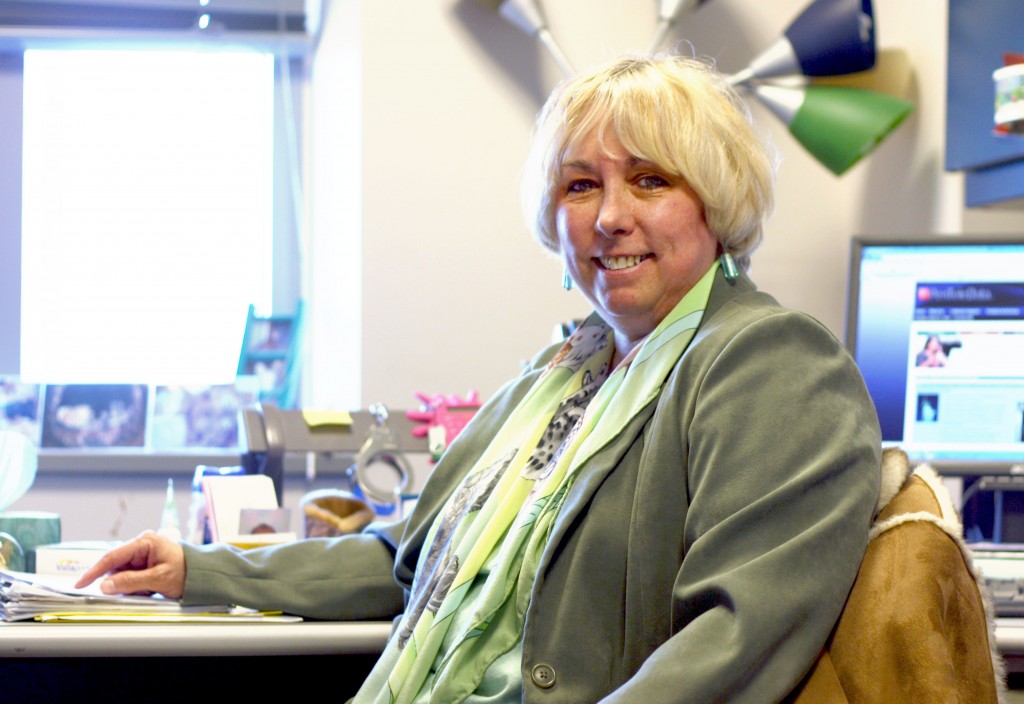
Mary Muscari, an associate professor in the Decker School of Nursing since 2007 — who rose to prominence for her work regarding teen bullying — has almost single-handedly created the certification for forensic health in Binghamton University. And though she is currently active in the forensic field, she maintains an open-door policy for students to talk about bullying and cyber bullying.
Her involvement in the nursing field began with children, as a pediatric nurse practitioner in 1980. The governor appointed Muscari as the first nurse on the Pennsylvania Sex Offender Assessment Board, where she is currently an adult and juvenile offender evaluator.
When she started in the field, Muscari spent her time giving presentations and working with teens who were acting out in social environments.
Following the Columbine High School shooting in 1999, where two students killed 13 people prior to committing suicide, Muscari said a lot of parents showed interest in her presentation.
“There were people there from different disciplines, and many of them had questions about what to teach parents,” she said.
Shortly after, Muscari began working on her book, “Not My Kid: 21 Steps to Raising a Non-Violent Child.”
“The book did well and propelled me into the career track I have now,” she said.
Although the relevance of Muscari’s book in 2002 was connected to the Columbine shooting, the increased use of social networks in bullying sustains its relevance.
“[It is] bullying at a different level,” she said. “The big problem with the social networks and all of the cyber bullying is that it’s so pervasive, you have access to it all the time … you don’t know who’s doing it and it’s a big problem. One of the things I’m concerned about is that we’re labeling it bullying but they’re bigger crimes than that, they’re beyond bullying.”
Muscari described her shift from studying teen bullying to becoming an adult and juvenile offender evaluator as a natural progression.
Her growing interests led her back to school where she earned her certificate in psychiatric nursing and a doctorate from Adelphi University, a post-master’s certificate in forensic nursing and additional forensic education as a sexual assault nurse examiner, a legal nurse consultant and a medicolegal death investigator.
Muscari said she is currently finishing a Master’s degree in criminology because she wants to incorporate what she has learned into her program at Binghamton.
Muscari is working to expand her Forensic Health Nursing certification program into a minor. The current certificate program has four classes, where she is the primary instructor. The staff hopes that the course is influential and helps students provide better patient care by helping them recognize problems and symptoms of potential patients.
Muscari said she wanted the courses to be more widely available, so she avoided time conflicts by teaching them online. The classes have been well reviewed by students, Muscari said.
“They fill up quick,” she said. “They’re the kind of courses where if you don’t sign up quickly, they’re going to be gone.”
Edwin-Nikko Kabigting, a junior in the Decker School of Nursing, said he finds her classes to be relevant and helpful.
“I think Dr. Muscari is an excellent professor,” Kabigting said. “She is extremely knowledgeable about the field of forensic nursing. I especially like her classes since they provide relevant clinical examples that a nurse can put into actual practice.”
Kelvin Roque, a senior majoring in human development, said he thinks Muscari’s work is inspiring.
“She seems to be really active, trying to involve the students with the world around them, in the field and for their own knowledge,” Roque said. “Someone that is inspiring not just to those who work with her but those who hope to have an influential career like she has had and that I myself will create something that leaves a mark even remotely like the ones she has made.”
Muscari continues to write, having published more than 60 professional articles, several professional and consumer books and numerous newspaper articles. She also has given more than 85 presentations, mostly about mental health forensics topics. Muscari’s 15th book will be published this spring.


